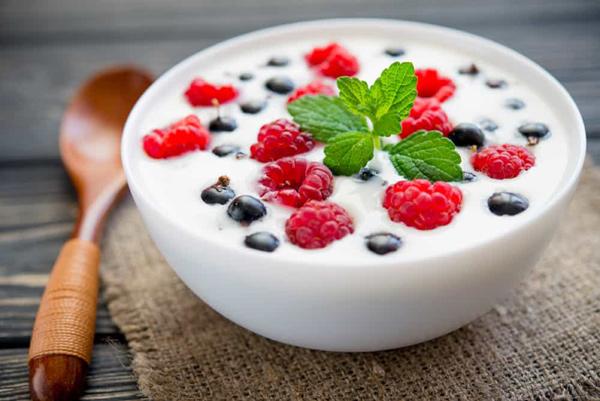You are here
Eat to thrive: Nutrition for Irritable Bowel Syndrome
By Ayah Murad , Family Flavours - Jan 31,2021 - Last updated at Feb 02,2021

Photo courtesy of Family Flavours magazine
By Ayah Murad
Pharmacist & Clinical Dietician
An often debilitating condition, Irritable Bowel Syndrome (IBS) leads to frequent, recurrent abdominal pain and constipation or diarrhoea. There is currently no specific cure for it, so dietary and lifestyle changes are essential. In this article, I help you identify triggers and to adopt a strategy to make them less frequent and less severe.
What is IBS?
IBS is a long-term condition of the gut that causes episodes of tummy cramps, bloating and constipation or diarrhoea. Irritable bowel syndrome is a problem with how the bowel works. Probiotics (the little friendly bacteria that inhabit the colon), help digest food that cannot be broken down efficiently and make it simple to pass through the colon for healthier bowel movements and emptying without creating gas and pain.
The presence of the good bacteria in your intestines is important for the immune system, as they secrete antiviral, antibacterial and antifungal chemicals. They also form a physical barrier to combat toxins or an invasion of bacteria and yeasts. Probiotics create a small acidic bubble in the intestines which promotes iron and other mineral absorption. Since the serotonin hormone (the happy hormone) is synthesised in the gut by probiotics, they also can help you maintain your mood and reduce your stress levels.
Probiotics and prebiotics
Probiotics are naturally found in fermented food such as yoghurt, kefir, sauerkraut, homemade pickles, naturally fermented apple cider vinegar or garlic vinegar. You’ll get better results when probiotics are mixed with prebiotics: the nutrients found in fruits (such as apples) and vegetables. The best time to eat food rich in prebiotics and probiotics is first thing in the morning or right before going to sleep.
What reduces or kills friendly bacteria
• Taking antibiotics or laxatives
• Having a food allergy that leads to diarrhoea
• Drinking water rich in chlorine
• Drinking excessive amounts of alcohol
• Having a diet that is rich in refined sugars and poor in fermented foods
• Suffering from chronic stress
Pharmacies carry probiotic and prebiotic supplements. Ask your pharmacist or doctor to choose the most suitable type for you.
Digestive enzymes
The lack of digestive enzymes can also be a cause of IBS. Some people cannot produce enough of the digestive enzyme called lactase. These individuals are allergic to lactose (milk sugar). Every time they drink milk or have milk as a hidden ingredient in what they eat, they suffer from maldigestion, bloating with or without diarrhoea and sometimes constipation.
Digestive enzymes are vital in supporting healthy digestion, reducing gas formation, bloating, indigestion and constipation following meals. Some natural digestive enzymes are present in kiwi, pineapples, ginger and papaya. Make sure to drink warm water with ginger slices and lemon zest after main meals, as this will help your stomach produce all the necessary enzymes for healthier digestion. You can also find digestive enzyme supplements at the pharmacy.
Your choice of fibre
The human body cannot digest many types of food, including cellulose (a complex carbohydrate found in bran or high fibre bread). While most people with IBS benefit from at least a moderate increase in dietary fibre intake, certain high fibre foods, such as bran, may increase gas production and bloating. However, the fibre in fruits and vegetables is easily digested.
Avoiding wax-coated fruits and vegetables
So many fruits and vegetables produce natural wax to protect themselves from bugs and other environmental factors after being harvested. Natural wax is a type of fat that can be digested by our body but synthetic wax cannot be digested. Some grocery stores wax all kinds of fruit and vegetables to make them shiny, glossy and more attractive to the consumer (this includes bell peppers, apples, cucumbers and even lemons). So make sure to de-wax your vegetables before consuming them by soaking your vegetables in vinegar and a small amount of baking soda.
Avoiding food that may bloat you
One typical example of a food that bloats is dairy. Well-ripened sour cheese, like Parmesan or blue cheese, are smart options for those with irritable bowel syndrome but not yellow cheese as it is high in fat content. Yoghurt is the exception – the good bacteria in yoghurt helps digest the lactose for you. Certain vegetables cause gas and abnormal bowel habits. Avoid cruciferous vegetables, such as broccoli, brussels sprouts, kohlrabi or cabbage, arugula, collard greens, radishes and watercress.
IBS prevention tips
• Snacking at bedtime on a blend of sour yoghurt with dill and cucumber; add two slices of ginger along with your probiotics
• Drinking warm water with blossom water and lemon zest when you wake up and on an empty stomach
• Reducing the number of caffeinated drinks throughout your day as they may increase your stress hormones
• Avoiding food that your body cannot digest or take a digestive enzyme 30 minutes before eating them
• Drinking water with crushed mint through the day
• Emptying your bowels daily by ensuring that you eat vegetables and fruit regularly
• Limiting food rich in fat including those with hidden fats
• Reducing the amount of red meat and poultry meals per week as they require a long time to digest
• Avoiding cold meals as they can reduce the blood circulation around the digestive system and thereby provide fewer digestive enzymes
Reprinted with permission from Family Flavours magazine
Related Articles
There are millions of natural bacteria in the gut. These microscopic organisms play a crucial part in our health. Probiotics are good bacteria that boost the collection of millions of beneficial microorganisms that live in our gut.
Your gut will thank you if you start to feed yourself with the right foods to promote the right kind of gut bacteria.Eating fruits and veget
By Ayah MuradClinical Dietician Milk, yoghurt and eggs are an important source of protein, vitamins and minerals, as well as good fats.


















